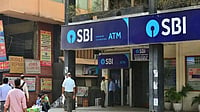A Sebi-appointed panel on Thursday suggested a detailed framework for onboarding social enterprises and non-profit organisations on the proposed social stock exchange.
Corporate foundations, political and religious organizations among other entities, should not be allowed to be on the bourse, the panel said, as it listed 15 broad activities that will make a social enterprise (SE) eligible to be onboarded on the exchange.
In its report submitted to the Securities and Exchange Board of India (Sebi), the panel, under the chairmanship of former NABARD chairman Harsh Kumar Bhanwala, also deliberated on aspects related to the ecosystem development, especially on social auditors.
SEs eligible to participate in the social stock exchange (SSE) should be entities — non-profit organisation (NPO) and for-profit social enterprise (FPE) — having social intent and impact as their primary goal. Such intent is demonstrated through its focus on eligible social objectives for the underserved or less privileged populations or regions, as per the recommendations.
The primacy is to be determined through application of three filters — SE should be engaged in at least one of the 15 broad eligible activities. It should target underserved or less privileged population segments or regions, and the SE should have at least 67 per cent of its activities qualifying as eligible activities to the target population.
The 15 broad areas of eligible activities include eradicating hunger, poverty, malnutrition and inequality, promoting healthcare, supporting education, employability and livelihoods, gender equality empowerment of women, and supporting incubators of social enterprises.
Besides corporate foundations, political or religious organisations, the committee has recommended that professional or trade associations, infrastructure and housing companies should not be permitted on the exchange, though entities in the affordable housing segment can be allowed.
Also, the panel has made certain recommendations for capacity building fund which will enable NGOs to navigate the SSE and its fundraising mechanism.
“These concepts of social auditors and capacity building fund are unique to fundraising for social enterprises in India, and would facilitate SSE in its activities,” according to the report released by Sebi for public comment till June 20.
The panel was constituted by Sebi in September 2020 for developing framework to onboard NPOs and FPEs on the SSE, including defining for-profit social investing/enterprises, prescribing disclosure requirements related to financials, governance, operational performance and social impact.
To inculcate a cultural shift towards a disclosure-based regime, the technical group has recommended prior registration of NPOs with SSE before fundraising. The registration criteria for NPOs include parameters such as minimum annual spending and receipts, and valid IT registration certificate.
The instruments of raising finance recommended for NPOs include equity, zero-coupon zero principal bonds, mutual funds, social impact funds, and development impact bonds. For FPEs, they include equity, debt, social impact funds, and development impact bonds.
Regarding disclosure, the panel said all entities on SSE would be required to disclose social impact on an annual basis, comprising of strategic intent and planning, approach and impact scorecard.
With regard to disclosure, the panel said entities on SSE should disclose social impact (for NPOs and FPEs) report on an annual basis, covering aspects such as strategic intent and planning, approach, and impact scorecard.
A capacity building fund (CBF) of Rs 100 crore may be instituted to enable NPOs and other stakeholders to navigate the SSE and its processes, instruments among others, apart from creating awareness. The technical group has recommended the CBF can be housed in NABARD as an administrative fund.
In respect of auditors, the panel said to begin with, only reputed firms/institutions having expertise in social audit should be allowed to carry out the audits.
Such institutions need to employ social auditors who have qualified certification course conducted by NISM. Social auditors will be required to be empanelled with an SRO which is proposed to be under ICAI as a separate Sustainability Directorate.
In order to make Social Venture Funds (a type of Category-I AIF) as an attractive means for investment in NPOs, it has recommended that a new form of social venture fund may be set up, allowing 100 per cent grants-in, grants-out.
It has also recommended that reference to “muted” returns in the AIF (alternative investment fund) regulations may be removed and the nomenclature of social venture funds may be changed to “social impact funds”.
The SSE is a novel concept in India and meant to serve private and non-profit sector providers by channelling greater capital to them.
Pursuant to announcement made by Finance Minister Nirmala Sitharaman in her Budget Speech 2019-20 regarding social stock exchanges, Sebi had constituted a working group on the exchanges in September 2019 under the chairmanship of Ishaat Hussain.
The working group made recommendations related to permitting participation of social enterprises on SSE, minimum reporting requirements, mechanisms of raising finance, and creation of separate self-regulatory organisations for social auditors, among others.
The report was put in the public domain for comments. While analysing comments received on it, Sebi said it was felt that further expert advice and clarity may be needed on certain critical operational issues before comprehensively firming up views in the matter and accordingly, a technical group was formed.































